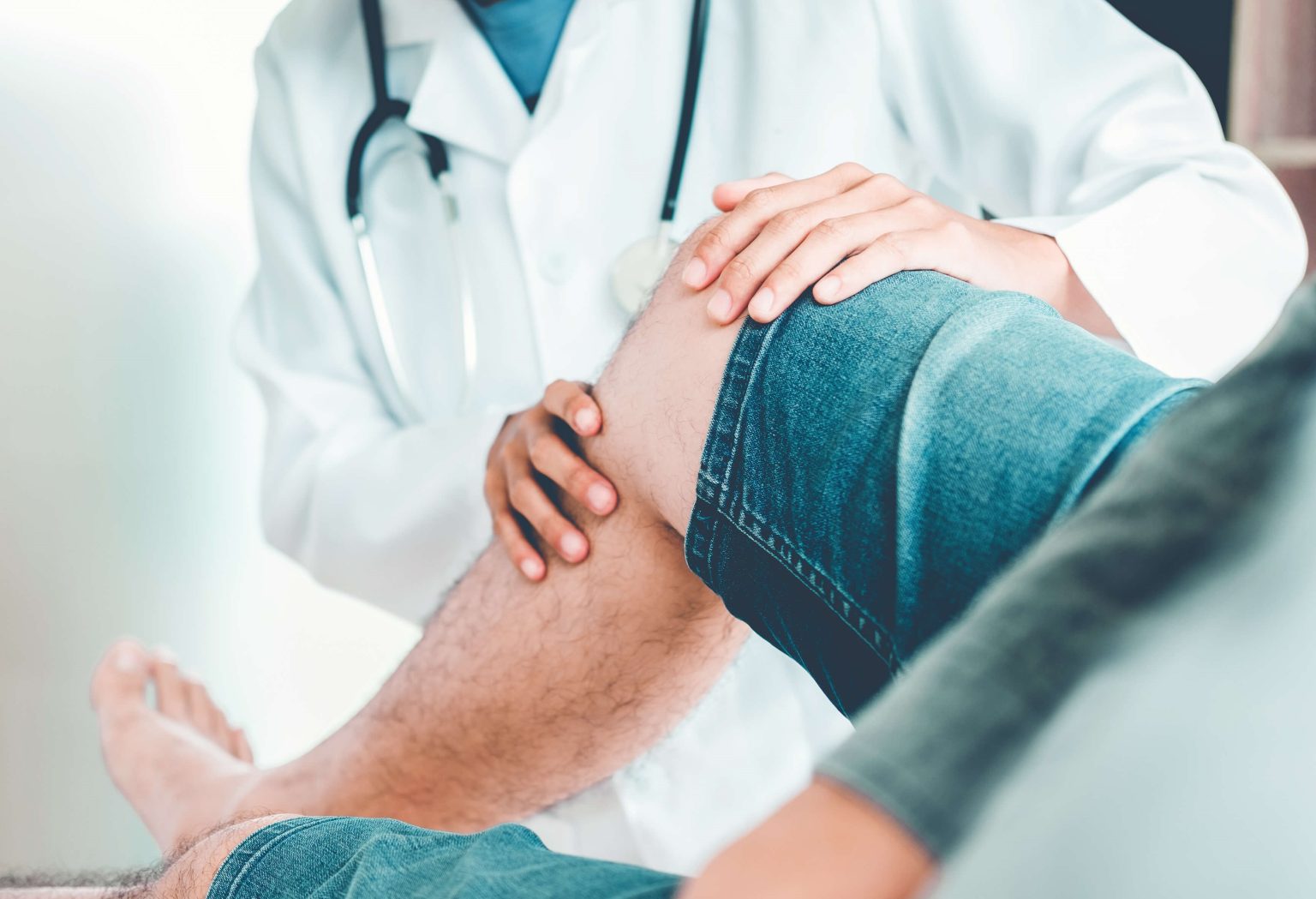SCHEDULE AN APPOINTMENT WITH US
Are Your Symptoms Affecting Your Quality Of Life?
Consult our MOH-accredited orthopaedic specialist for a detailed consultation & personalised treatment plan today.
Dr Ambrose Yung, with over 20 years of experience, specialises in a range of knee-related treatments and surgeries. He specialises in complex procedures such as revision knee arthroplasty, partial knee replacement, and primary total knee replacement.
Experiencing knee pain or discomfort that affects your daily activities? Our knee specialist can provide comprehensive diagnostic evaluations and personalised treatment options to address your specific condition.

Knee conditions vary widely in type and severity. Common knee conditions may include:
Common causes of knee conditions include:
The symptoms and signs of knee issues vary depending on the condition, and may include the following:
The diagnostic process typically involves the following steps:
Understanding the patient’s overall health, history of knee problems, and the specific circumstances leading to the current condition.
A thorough examination of the knee to assess pain, swelling, stability, range of motion, and strength. This may also include functional tests to evaluate the knee’s function during various activities or movements to pinpoint specific conditions.
Analysis of blood or fluid from the knee joint can help identify infections or diseases like gout and rheumatoid arthritis.
For many knee conditions, non-surgical treatment methods are effective in relieving pain and restoring function. Common non-surgical options include:
When non-surgical treatments are insufficient, surgery may be necessary to address more severe knee conditions. Common surgical options include:
A minimally invasive procedure using small incisions and a camera (arthroscope) to repair or remove damaged tissue. Commonly used for meniscus tears, ACL repairs, and removal of loose bodies in the knee.
Involves replacing the damaged knee joint with artificial components. Total knee replacement is typically considered for severe osteoarthritis or other debilitating joint conditions.
A less invasive option compared to total knee replacement, where only a part of the knee joint is replaced. This is suitable for patients with damage limited to a specific area of the knee.
This surgery reconstructs a torn anterior cruciate ligament using a graft taken from another tendon in the patient’s body or from a donor.
Surgical repair of a torn meniscus, either by stitching the torn pieces together or removing the damaged part of the meniscus.
This includes the reshaping of the bones to relieve pressure on the knee joint. It is often used for younger patients with early-stage osteoarthritis.
The rehabilitation process for knee conditions aims to restore the strength, mobility, and function of the knee. Initially, the focus is on reducing pain and swelling. This involves rest, ice, compression, and elevation (RICE) along with the use of anti-inflammatory medications as prescribed.
As pain and swelling decrease, patients can engage in physical therapy. This includes exercises to strengthen the muscles around the knee, improve flexibility, and enhance joint stability. These are progressively intensified based on individual tolerance and recovery speed.
Regular follow-up appointments can help monitor progress and make adjustments to the rehabilitation plan as needed. The ultimate goal is to facilitate a safe and effective return to daily activities, work, and sports, focusing on sustained knee health.
Preventing complications related to knee conditions involves a combination of proactive measures and lifestyle modifications.
SCHEDULE AN APPOINTMENT WITH US
Consult our MOH-accredited orthopaedic specialist for a detailed consultation & personalised treatment plan today.
Monday – Friday: 9.00am – 6.00 pm
Saturday: 9.00am – 1.00pm
Sunday & PH: CLOSED
Monday – Friday: 9.00am – 6.00 pm
Saturday: 9.00am – 1.00pm
Sunday & PH: CLOSED
Get Started
When experiencing knee pain, try to avoid activities that exacerbate the discomfort. High-impact exercises such as running, jumping, or heavy lifting should be limited. Prolonged periods of sitting or standing in the same position should also be avoided, to reduce strain on the knees.
The recovery time from knee pain varies depending on the underlying cause and severity. Minor injuries may improve within a few weeks with appropriate rest and care, while more serious conditions may require a longer period, particularly if surgical intervention is involved. Consistent follow-up with a knee specialist can ensure a recovery plan that is effective and suited to individual needs.
Leaving knee conditions untreated can lead to worsening symptoms and potentially more serious complications. Conditions like osteoarthritis, if not managed properly, can lead to increased pain, reduced mobility, and an impact on quality of life. Early intervention by a knee specialist can prevent the condition from deteriorating and provide more effective treatment options.
Knee surgery is considered when non-surgical treatments have not provided sufficient relief, or when the knee condition is severely impacting the quality of life. Surgical options are typically discussed in cases of serious structural damage to the knee, such as severe osteoarthritis or complete ligament tears. Consult with a knee specialist to evaluate the need for surgery based on your specific condition.
Knee pain that persists beyond a few days, especially if it limits daily activities or is accompanied by other symptoms like severe swelling, instability, or reduced range of motion, should be evaluated by a knee specialist. Knee pain that results from an injury or is accompanied by signs of infection, such as fever or redness, should also warrant medical attention.